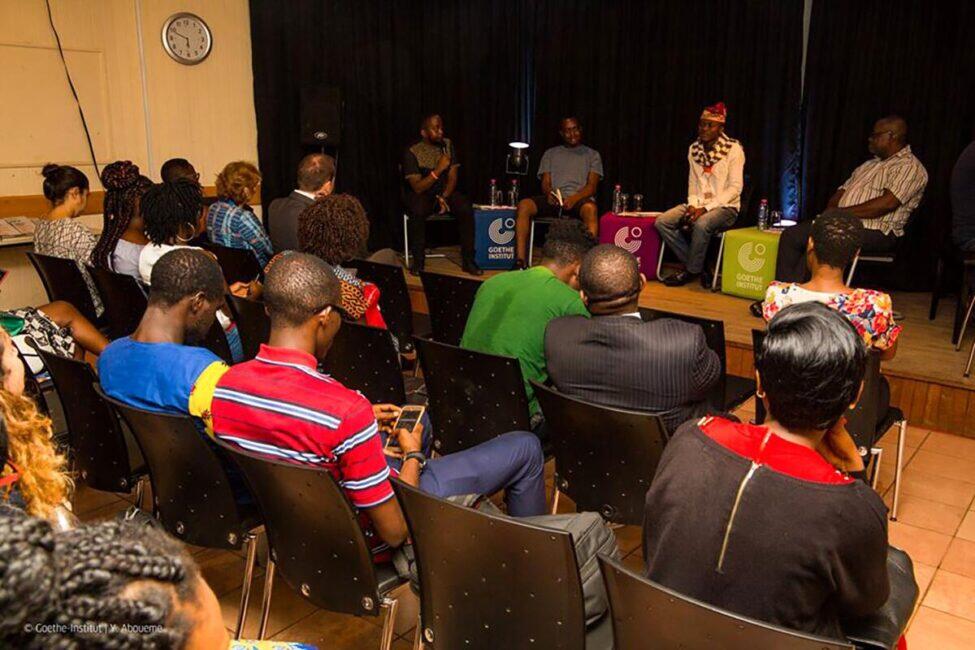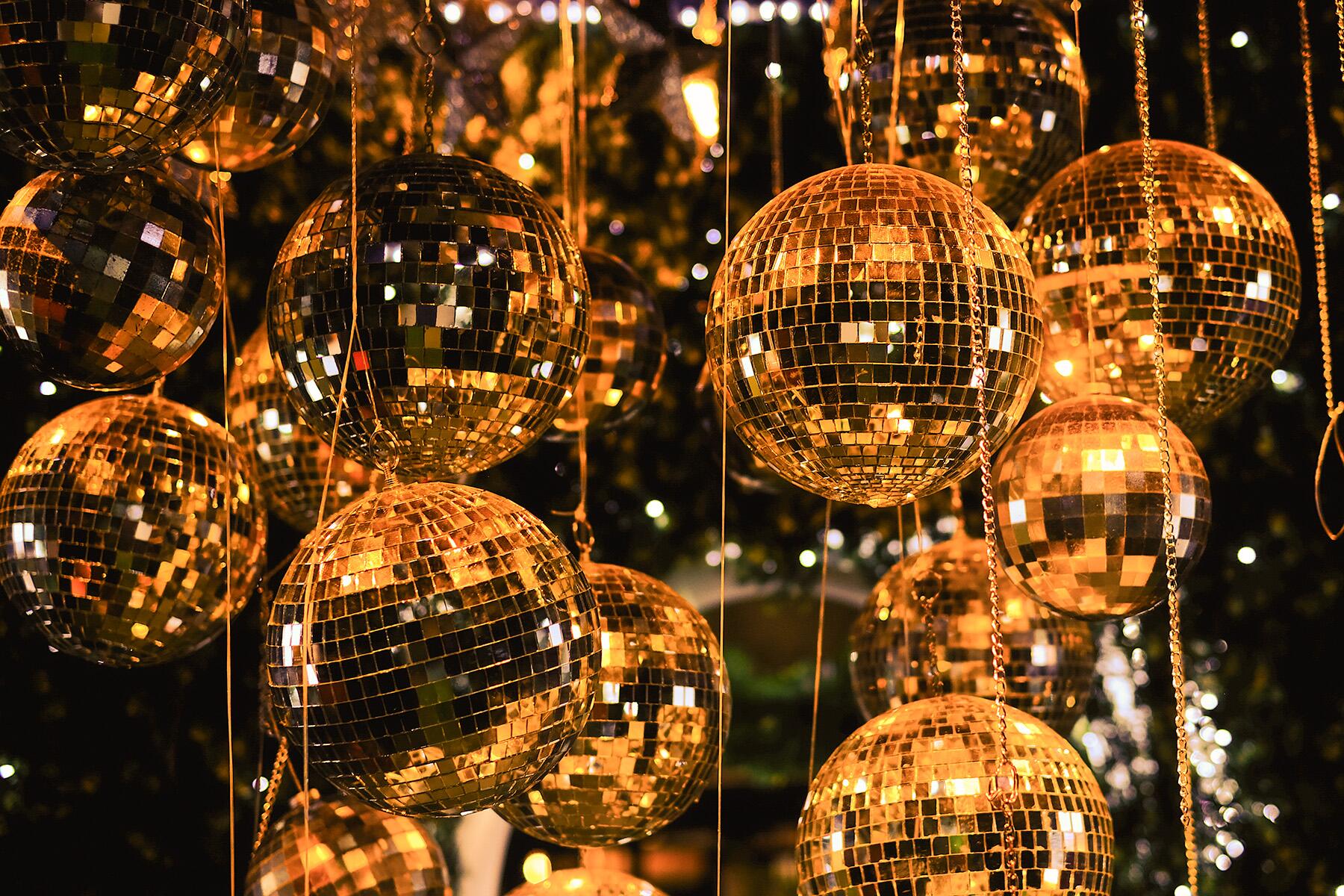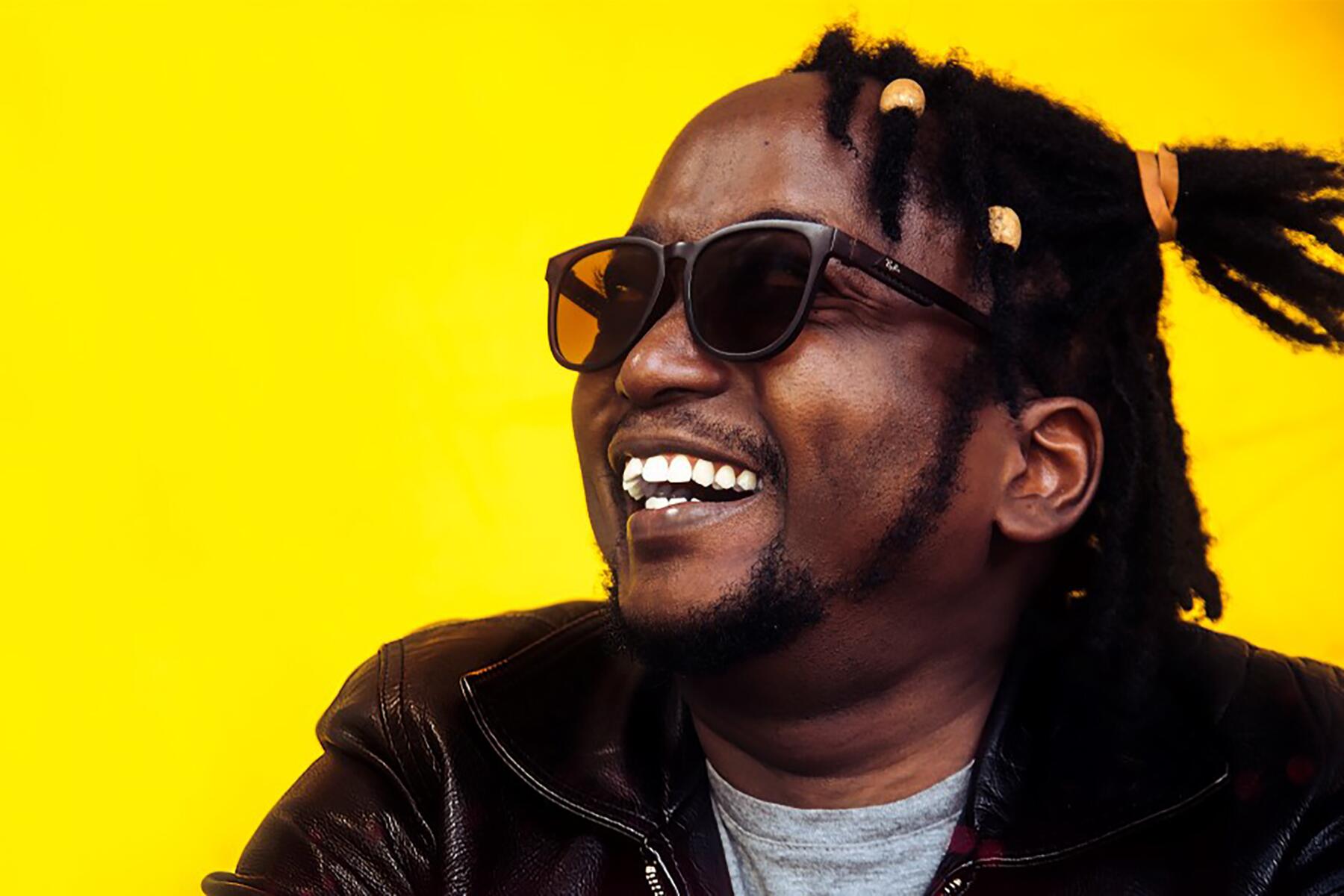Dzekashu MacViban is introducing some of Cameroon’s most exciting writers to readers around the world.
Like many aspects of Cameroonian life, its literature is often viewed as something that was once great, rather than an ongoing project that is still evolving. The popular joke is that if you want to hide something from a Cameroonian, put it in a book. Quiz the average adult on the street about the best books they’ve read and familiar names ring out: Mongo Beti, Mbella Sone Dipoko, Linus T. Asong, Ferdinand Oyono, Imbolo Mbue, Calixthe Beyala, and Patrice Nganang.
The problem with this shortlist, besides that there are numerous other brilliant writers worthy of mention, is that the first four of these authors are dead, and the other three write from abroad. We see this issue in Imbolo Mbue’s representation of Cameroon in her award-winning novel Behold the Dreamers. The book paints a credible picture of a Cameroonian migrant couple struggling through the 2008 recession in New York, but its depiction of Cameroon at that time, in many parts, doesn’t match that of a country that had largely moved on from the notion that its citizens living abroad were special. Also, while the foreign reader might be intrigued by some of the depictions of Cameroonian life in the novel, Cameroonian readers can find that it binges too much on nostalgia.
Recommended Fodor’s Video
For people who are not familiar with the country, it’s hard to get an authentic notion of the Cameroonian experience by reading literature from the colonial period or by diaspora writers. In terms of sheer artistry, the Cameroonian canon still provides some of the best entertainment and insight for readers: Ferdinand Oyono’s The Old Man and the Medal, Mongo Beti’s Mission to Kala, Albert Mukong’s Prisoner Without a Crime, Kenjo Jumbam’s The White Man of God, Calixthe Beyala’s The Sun Hath Looked Upon Me, and Leonora Miano’s Dark Heart of Night are must-reads. But while colonial and diaspora writing receives the most attention outside Cameroon, and while they’re brilliant, these stories represent the past and a present that is distant and often disconnected from today’s reality.
Recent wins in major literary competitions by Djaïli Amadou Amal (Prix Goncourt des Lycéens 2020) and Howard Meh-Buh Maximus (Morland Scholarship for African Writers 2020) prove there’s contemporary writing talent in Cameroon. The difficulty remains in how to identify and offer living writers opportunities for growth. In Maximus’ case, part of the growth has come from rising through the ranks at Bakwa Magazine, a publication of literary and cultural criticism founded by writer and editor Dzekashu MacViban in 2011.
View this post on Instagram
“I am proud of Howard Meh-Buh Maximus,” says MacViban. “He is one of the brightest writers of his generation. His award has shown people that writing professionally can be rewarding, and now young writers have a new role model to look up to.”
MacViban understands that role models matter. Bakwa Magazine, in collaboration with partners like the Goethe-Institut, UK Arts and Humanities Research Council, and the University of Bristol, organizes writing and translation workshops for young writers in Cameroon. The best among these are placed in a mentorship program and have their works published in anthologies by Bakwa Books, the magazine’s independent book division. Books in this series include Limbe to Lagos, Of Passion and Ink, and Your Feet Will Lead You Where Your Heart Is. Limbe to Lagos is a collection of stories from Cameroonian and Nigerian writers, while Your Feet Will Lead You Where Your Heart Is does something that has hardly been tried before: bringing Anglophone and Francophone Cameroonians into the same literary space, reading and translating each other’s short stories, and publishing them in an anthology in both English and French.
Placing Nigerian and Cameroonian writers side by side, however, shows the work that still has to be done to take Cameroonian writing to the next level. In Limbe to Lagos, the stories by Nigerian authors often display more depth, a sign of the robust writing and publishing scene in Nigeria that their Cameroonian counterparts don’t benefit from because Cameroon lacks the infrastructure.
Launch of Limbe to Lagos in Yaounde, Cameroon/ Photo credit: Goethe-Institut Kamerun
Foreign sponsorship also raises the same concerns posed by writer Joyce Ashuntantang about who controls the nature of African stories. That’s why Bakwa Books publications feel like the closest thing to more proper representation of life in Cameroon at the moment: writers of non-fiction and fiction alike who are mostly young people struggling under an oppressive system that forces them to seek escape through the practice of their art. Without traditional publishers to help them publish and market or the means to self-publish and promote, they’re jumping at the chance Bakwa Books offers them to get read.
And Bakwa Magazine has whipped up enthusiasm for these stories brilliantly through engaging promotional campaigns and branding. Poetry cafes, music, food, and social media engagements are all in the mix. For a country that “doesn’t read,” having over 6,000 followers on Facebook is impressive. Bakwa Magazine has inserted itself into the culture and it seems to be working. The magazine is slowly raising the profile of the writer to the level of someone who needs to be heard by society. This is in stark contrast to the establishment, which over the years has caged the Cameroonian writer.
First, the most lucrative path for Cameroonian writers is to be listed on school reading lists, which can even involve bribery. When authors pay to have their work included in the school curriculums, the overall standards are lowered and the best Cameroonian writers aren’t necessarily represented. But at Bakwa Magazine, the standards are based on the writing.
“We are more interested in providing value and building a relationship with our readers than going after likes,” MacViban says.
And second, engaging readers is also helping to erode some of the elitism that has characterized Cameroon’s literati. Now stories can be judged not solely by literary critics, but also by the people authors write about and for. That sort of gatekeeping also comes with pressure from an intolerant government that frowns on free speech and controversial topics, effectively cutting off the writer’s ability to say anything provocative. But as was shown with Bearing Witness: Poems From a Land in Turmoil, which was published in 2020, many writers are willing to take that risk. This collection of poetry, edited by Joyce Ashuntantang and Dibussi Tande, features 73 poets on the armed conflict in Cameroon.

MacViban also plays a key role in introducing Cameroonian writing to the world at major international events like the Kwani? Literary Festival in Kenya. His work has been translated into Spanish and Japanese, giving rise to opportunities for a global audience to discover writing from Cameroon. He’s visited 12 countries promoting Cameroonian authors and has created the chance for an international audience to learn about Cameroonian writers through the Bakwa Literary Festival and BakwaCast, the magazine’s podcast. To celebrate Bakwa Magazine’s 10th anniversary, MacViban is coordinating a series of live events, COVID permitting, in three different countries.
“We have published works in English, French, Pidgin English, and Spanish. Our audience is a very multilingual one which is also reflective of our multilingual production. The work we do at Bakwa has been very well received abroad. We’ve been invited to several festivals and sold the foreign rights to two books we have published and a third one is in the pipeline.”
With strong partnerships and exciting talent to work with, MacViban sees a clear path forward for Cameroon’s publishing industry.
“The future of Cameroonian writing is full of hope. So much groundwork is being done by different individuals who are building infrastructures.”
Standing at the gateway where emerging Cameroonian writers get ushered into the world, MacViban has recommendations for writers readers should be looking out for: Nkiacha Atemkeng, Howard Meh-Buh Maximus, Florian Ngimbis, Barah Mariette, and Bertille Mbarga.
How Cameroonian writing evolves from here will ultimately depend on the quality of its young writers. No matter that “Cameroonians don’t read,” there’s a group of avid booklovers who’re committed to buying new and used paperbacks, ordering titles on Amazon, or reading legal and illegal e-books. There’s also a renewed attempt by a few publishing houses, indie booksellers, and established bookstores to market local titles. This, in partnership with trusted reviews and criticism, will lead Cameroonian readers in the right direction and help the best writers rise to the top.
Because ambitious writers are up against more than just bribery and censorship–they’ll have to decide if their passion is worth the risk. Some of their colleagues have simply disappeared or are being tortured in prison. MacViban says he’s worried about his safety all the time. But if his best writers succeed to get the attention of booklovers in Cameroon, it’s these voices that the world will want to hear more from.



